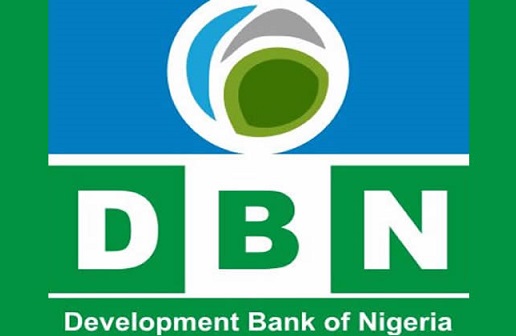Development Bank of Nigeria (DBN), the federal government’s
development banking institution with a mandate of addressing the
major financing challenges facing micro, small and medium scale
enterprises (MSMEs) in Nigeria has launched three new and innovative
products– the DBN Finance to Finance (F2F) Product, the DBN Non-
Interest Banking Product and the DBN Long-Term Product – which are
expected to provide the much-needed access to financing window to
the MSMEs through its participating financial institutions (PFIs). This
will further address the existing access to finance challenges facing
MSMEs in the country that have been exacerbated by the effects of the
corona virus disease (COVID-19) pandemic.
Prior to the outbreak of the COVID-19 pandemic, the funding gap in the
MSMEs sector in Nigeria was a whooping N48 trillion, according to
Godwin Emefiele, the Governor of Central Bank of Nigeria (CBN). This
frightening reality constantly drives DBN to look for ways to bridge this
gap in line with its strategic mandate.
One of these new products, the DBN Finance to Finance (F2F) product is
especially designed for financial institutions (FIs) that lend to MSMEs
through the likes of the microfinance banks, microfinance institutions,
financial NGOs, cooperatives, fintech companies and other non-bank
financial institutions. Through this product, which has a tenor of up to
seven years, the DBN makes funds available to FIs who are unable to
receive funding directly from DBN to disburse to their MSME
customers. This way DBN is able to expand its reach to the MSMEs. The
FIs who will qualify for this product would be expected to have active
MSME portfolios and demonstrate a commitment to lend the funds to
the target MSMEs.
The second offering, the Non-Interest Banking product is developed for
applicable participating financial institutions (PFIs) for on-lending to
their MSME customers under the non-interest banking window. The
fund, which is in support of the PFIs’ funding to their MSME customers
is a demonstration of the DBN’s commitment to increasing the
availability of its funding to all MSMEs across the country. The product,
which is also aimed at promoting financial inclusion in the country is
available to all non-interest banks as well as other financial institutions
who have non-interest banking products and wish to utilize DBN funds
to deploy non-interest banking loans to their MSME customers for a
tenor of up to five years.
The Long-Term finance product is a loan product provided to PFIs to
support their long-term lending to MSMEs for a period of up to 10
years. The structure of the fund is flexible and can be easily adapted to
suit the PFIs’ peculiar needs and finance structure. Any PFI can request
for this facility to cater for the long-term finance needs of its MSME
customers where there are tenor mismatches between available
funding and customers funding requirements.
It is worthy to note that all these products are meant to cover all
aspects of the MSMEs sector irrespective of location, industry or
business cycle. They are, however, meant for those MSMEs with less
than 250 employees, asset base of less than N1.125 billion, and an
annual turnover of less than N950 million. The maximum loan size
disbursable to any of the qualifying MSMEs is N200 million.
These products could not have come at a better time when both the
global and local economies have been battered by the effects of the
COVID-19 pandemic. Nigeria, just like other countries of the world has
had its fair share of the pandemic and its effects, leading the country
into a bad economic depression – the worst since the 1980s and the
second since 2015. The lockdown led to the closure of many
businesses, mostly the micro, small and medium-scale enterprises
(MSMEs) in the country. Those who survived or surviving are struggling
to get on their feet once again as they are besieged with challenges of
access to finance.
Also, the capacity of the banks and other lending institutions to provide
access to financing has been reduced due to the slow-down in
economic activities, on the other hand, and the enormity (number and
volume) of the demands for financing by MSMEs has also contributed
to the development of these three new banking product offerings.
Development Bank of Nigeria, which commenced operations in 2017
has between 2018 and 2020, disbursed N323 billion to over one
hundred and thirty-six thousand (136,000) MSMEs across the six
geopolitical zones of the country through the PFIs. With the creation of
these products, the Bank is poised to increase its impact on the
operations of the MSMEs in Nigeria.








